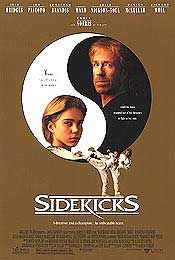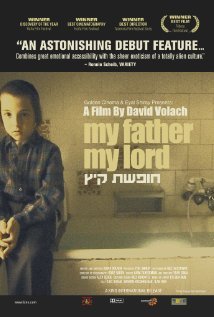“Anti-Jewish Drama”

| None | Light | Moderate | Heavy | |
|---|---|---|---|---|
| Language | ||||
| Violence | ||||
| Sex | ||||
| Nudity |
What You Need To Know:
The movie draws the analogy to Abraham and Isaac when Abraham was commanded to sacrifice Issac. In the movie, this story from the Torah book of Genesis is recounted numerous times. However, in every account of the story, the movie never mentions that, according to Genesis, God prevented Abraham from sacrificing Isaac. In fact, the potential sacrifice of Abraham’s son foreshadows the actual sacrifice of God’s son, Jesus Christ. The fact that the movie uses only part of this story to paint a negative picture of a devout Jewish man underscores the anti-religious bigotry behind the filmmaker’s intent.
Content:
(HH, ABAB, FRFR, V, N, MM) Strong humanist, anti-Jewish, anti-biblical worldview portraying a rabbi who neglects his family for his religious studies and empty rituals; no foul language; character drowns; no sex; upper male nudity in swimsuits; no alcohol; no smoking or drugs; and, negative portrayal of a father figure.
More Detail:
In a moment of tragedy on the shore of the Dead Sea, Abraham is too busy with the afternoon prayers to notice that his young son swims into the sea and drowns. The movie makes the point that it was Abraham’s fanatical devotion to his religion that made him not pay attention to his son. Abraham’s wife Esther blames Abraham for the boy’s death.
The movie draws the analogy to Abraham and Issac when Abraham was commanded to sacrifice Issac. In the movie, this story from the Torah and Genesis is recounted numerous times and the father is even named Abraham. However, in every account of the story in this movie, it is never mentioned that, according to Moses in Genesis, God prevented Abraham from sacrificing Isaac. In fact, the potential sacrifice of Abraham’s son foreshadows the actual sacrifice of God’s son, Jesus Christ. The fact that the movie uses only part of this story to paint the negative picture of a devout Jewish man underscores the anti-religious bigotry behind the filmmaker’s intent.
Further, the rabbi expresses the idea that the Torah was made for only a righteous man. And, he defines a righteous man as only a man who is a Jew and a part of the society devoted to studying the Hebrew Scriptures. Abraham is unemotional and fanatical. Esther, his wife, seems starved for affection. Menachem struggles with his love for animals and his father’s assertion that animals are only to serve men. In fact, it is Menachem trying to help a small fish at the Dead Sea that causes him to go into the water and ultimately drown. As the movie ends, Esther is bitter and at least rejects the books which Abraham studies, if not rejects God himself.
In addition to being sad and anti-Jewish, the movie is not well made. There are long stretches of shots and scenes where characters just sit and ponder. The movie feels very self-indulgent from a filmmaker who seems unreasonably angry at the Haredic community. There is very little plot, very little dialogue, and at only 73 minutes running time, the movie feels much, much longer because the story’s pace is so slow. There is some emotional connection, mostly pity, for the young boy. His drowning is handled off camera, which further distances viewers from the heart of the story.


 - Content:
- Content: 

